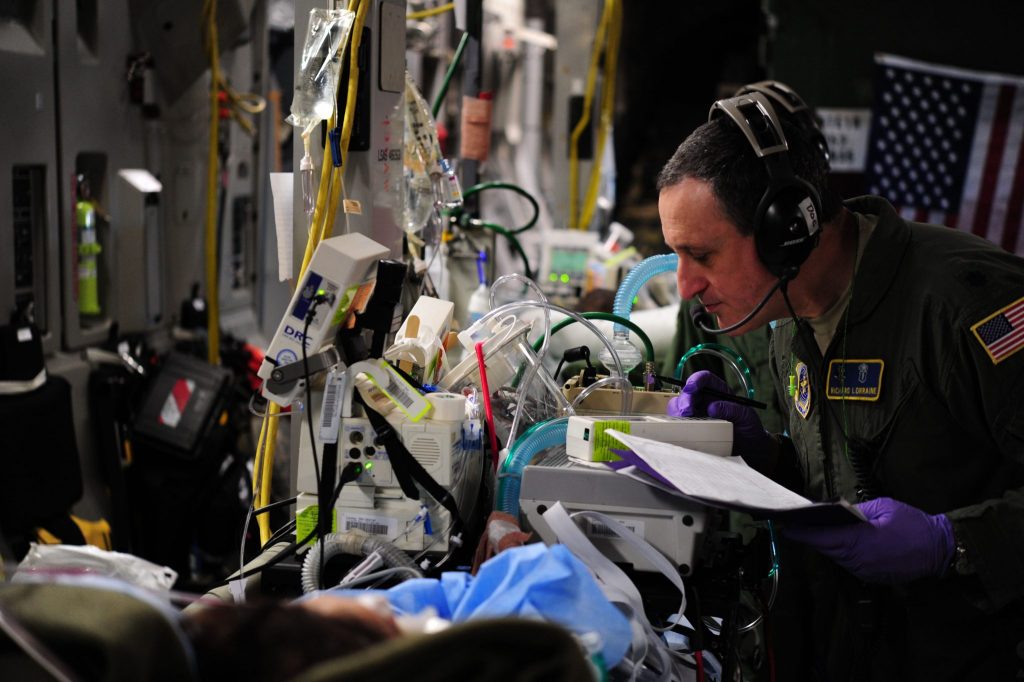

The province reported 300 new COVID-19 cases on Friday and 12 more deaths from the illness - the third-highest single-day death total reported in the province during the pandemic.Īs of Saturday, there were 288 people in hospital in Saskatchewan with COVID-19, including 77 in ICUs, according to the province's online dashboard. It is difficult, complex anduntil these conflicts. WATCH | Ottawa sending Armed Forces members to Sask.:Ī Saskatchewan Health Authority briefing this week heard that the seven-day average of COVID-19 patients in the province's ICUs is the highest per capita of any province, at any time during the pandemic. The Critical Care Air Transport Team (CCATT) (see the Tactical Critical Care Evacuation Team (Tccet) (see and En Route Critical Care programs send surgeons, trauma nurses, nurse-anesthetists, operating-room technicians and paramedics far forward to deliver care comparable to that received in an intensive-care unit or a Level I trauma center emergency room, either at the point of injury or in the air. Critical Care Air Transport Team There are examples of military critical. "That doesn't sound like a lot, but when you're in a situation in a province where you only have typically 80 ICU beds on average, two to three beds does make a significant difference." 3 This Gulfstream IV air ambulance is a pressurized jet with a range of over. "That's enough to staff two three ICU beds," said Wong. He said even if the military sends the same number of personnel it sent to Alberta earlier this month, it would help. CCATT nurses improvise and provide nursing care based on past experiences. Alex Wong, an infectious diseases specialist in Regina, says he and other health-care professionals are grateful for the additional support. that are part of the Air Forces Critical Care Air Transport Team (CCATT). The statement also noted the Forces will also provide air transport for in- and out-of-province patient transfers, and - upon availability - up to two medical assistance teams to backfill nurses.ĭr. "We are currently working with provincial authorities to ensure these medical professionals will be employed in the best possible location based on the needs of the people of Saskatchewan," an Armed Forces statement said. The Armed Forces confirmed to CBC News Saturday that it is prepared to help the province with up to six critical care nursing officers, who will be working in intensive care units.

"As we work to finish the fight against COVID-19, we're going to make sure people across the country have the support they need to stay safe," Trudeau tweeted. Prime Minster Justin Trudeau also confirmed the news on social media. "The Canadian Forces will provide communities the support they need to fight the pandemic," Blair tweeted.

(Graham Hughes/The Canadian Press - image credit)įederal Minister of Public Safety Bill Blair announced on Twitter Friday evening that the Canadian Armed Forces will be deployed to Saskatchewan to assist with the growing COVID-19 situation. The Armed Forces confirmed to CBC News Saturday that it is prepared to help Saskatchewan with up to six critical care nursing officers, who will be working in intensive care units. A member of the Canadian Armed Forces is shown at Residence Villa Val des Arbres, a long-term care home in Laval, Que., in an April 2020 photo.


 0 kommentar(er)
0 kommentar(er)
